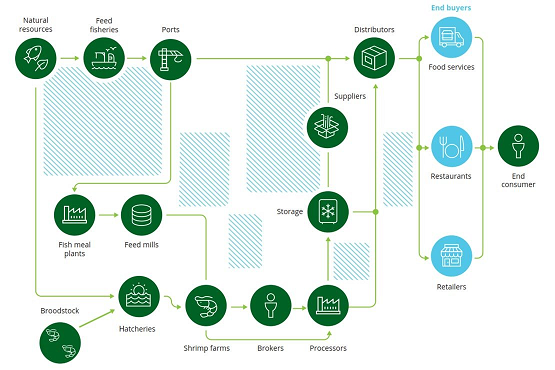Home
| About
| Mine Tracker
| RSS
| Footer
▄▄▄▄▄▄▄▄▄▄▄▄▄▄▄▄▄▄▄▄▄▄▄▄▄▄▄▄▄▄▄▄▄▄▄▄▄▄▄▄▄▄▄▄▄▄▄▄▄▄▄▄▄▄▄▄▄▄▄▄▄▄▄▄▄▄▄▄▄▄▄▄▄▄▄▄▄▄▄▄▄▄▄▄▄▄▄▄▄▄▄▄▄▄▄▄ █▄▄░▄▄█░▄▄▀█░▄▄▀█▀▄▀█░▄▄███░▄▄▀█░▄▄▀█░▄▀███▄▄░▄▄█░▄▄▀█░▄▄▀█▀▄▀█░▄▄█░▄▄▀█░▄▄▀██▄██░███▄██▄░▄█░██░ ███░███░▀▀▄█░▀▀░█░█▀█░▄▄███░▀▀░█░██░█░█░█████░███░▀▀▄█░▀▀░█░█▀█░▄▄█░▀▀░█░▄▄▀██░▄█░███░▄██░██░▀▀░ ███░███▄█▄▄█▄██▄██▄██▄▄▄███▄██▄█▄██▄█▄▄██████░███▄█▄▄█▄██▄██▄██▄▄▄█▄██▄█▄▄▄▄█▄▄▄█▄▄█▄▄▄██▄██▀▀▀▄ ▀▀▀▀▀▀▀▀▀▀▀▀▀▀▀▀▀▀▀▀▀▀▀▀▀▀▀▀▀▀▀▀▀▀▀▀▀▀▀▀▀▀▀▀▀▀▀▀▀▀▀▀▀▀▀▀▀▀▀▀▀▀▀▀▀▀▀▀▀▀▀▀▀▀▀▀▀▀▀▀▀▀▀▀▀▀▀▀▀▀▀▀▀▀▀▀
Shrimp Welfare Project
https://www.shrimpwelfareproject.org/
Shrimp Welfare Project aims to improve the lives of billions of farmed shrimps worldwide
https://www.shrimpwelfareproject.org/
Shrimp Welfare Project aims to improve the lives of billions of farmed shrimps worldwide
Report; Hidden Harvests
https://corpaccountabilitylab.org/hidden-harvest
This report is the culmination of three years of research and investigations into the Indian shrimp sector, examining evidence of forced labor, living and working conditions for shrimp supply chain workers, environmental impacts of the industry, and the failure of social auditing certification schemes that purport to to ensure that the shrimp sold with their imprimatur were ethically and sustainably produced.
The current system of farmed shrimp production is not sustainable – not for workers, the environment, or – ultimately – for retailers, wholesalers, or consumers. The Indian shrimp sector is rife with discrimination, dangerous working conditions, hazardous child labor, sexual harassment, debt bondage, threats and intimidation, toxic sewage, false and misleading certification schemes, and a general lack of oversight.
Rather than continue down a road littered with exploitation, discrimination, and forced labor, companies – and governments – have the opportunity and the duty to act now. There is no time to waste in treating workers with respect and addressing the substantial threats to the environment presented by the Indian shrimp sector.
https://corpaccountabilitylab.org/hidden-harvest
This report is the culmination of three years of research and investigations into the Indian shrimp sector, examining evidence of forced labor, living and working conditions for shrimp supply chain workers, environmental impacts of the industry, and the failure of social auditing certification schemes that purport to to ensure that the shrimp sold with their imprimatur were ethically and sustainably produced.
The current system of farmed shrimp production is not sustainable – not for workers, the environment, or – ultimately – for retailers, wholesalers, or consumers. The Indian shrimp sector is rife with discrimination, dangerous working conditions, hazardous child labor, sexual harassment, debt bondage, threats and intimidation, toxic sewage, false and misleading certification schemes, and a general lack of oversight.
Rather than continue down a road littered with exploitation, discrimination, and forced labor, companies – and governments – have the opportunity and the duty to act now. There is no time to waste in treating workers with respect and addressing the substantial threats to the environment presented by the Indian shrimp sector.
An Overview of Shrimp and its Sustainability in 2024
https://sustainablefisheries-uw.org/shrimp-sustainability-2024/
Despite this steadily growing demand domestically and abroad, wild and farmed shrimp production has inherent, well-reported issues that make sustainability challenging. Consumers are more aware of these issues than ever, with considerable media attention given to the environmental and social challenges in recent years. Grocery retail buyers are responding by requiring minimum environmental certifications and labor standards for their suppliers. But how are these new criteria keeping up with demand? How sustainable is global shrimp production in 2024?
https://sustainablefisheries-uw.org/shrimp-sustainability-2024/
Despite this steadily growing demand domestically and abroad, wild and farmed shrimp production has inherent, well-reported issues that make sustainability challenging. Consumers are more aware of these issues than ever, with considerable media attention given to the environmental and social challenges in recent years. Grocery retail buyers are responding by requiring minimum environmental certifications and labor standards for their suppliers. But how are these new criteria keeping up with demand? How sustainable is global shrimp production in 2024?
WWF Traceability in Farmed Shrimp
https://seafoodsustainability.org/aquaculture/farmed-shrimp/traceability/

Today’s shrimp supply chains are long, complex, and often opaque. Without visibility, it is impossible to handle food safety concerns, prove legality, and verify sustainability—all issues that consumers, investors, regulators, and media are increasingly demanding. Traceability is essential to demonstrating that a product is ethically and sustainably sourced.
https://seafoodsustainability.org/aquaculture/farmed-shrimp/traceability/

Today’s shrimp supply chains are long, complex, and often opaque. Without visibility, it is impossible to handle food safety concerns, prove legality, and verify sustainability—all issues that consumers, investors, regulators, and media are increasingly demanding. Traceability is essential to demonstrating that a product is ethically and sustainably sourced.